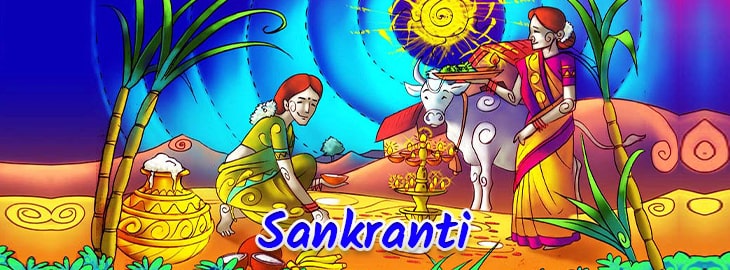| Date | Festivals |
|---|---|
| Thursday, 14 January | Makar Sankranti |
| Friday, 12 February | Kumbh Sankranti |
| Sunday, 14 March | Meen Sankranti |
| Wednesday, 14 April | Mesh Sankranti |
| Friday, 14 May | Vrishabh Sankranti |
| Tuesday, 15 June | Mithun Sankranti |
| Friday, 16 July | Kark Sankranti |
| Tuesday, 17 August | Simha Sankranti |
| Friday, 17 September | Kanya Sankranti |
| Sunday, 17 October | Tula Sankranti |
| Tuesday, 16 November | Vrischik Sankranti |
| Thursday, 16 December | Dhanu Sankranti |
Sankranti means the transit of Sun from one zodiac sign to another sign. In India, this festival is very well-liked and is celebrated in different parts of country with joyfulness and bliss. Every year, Makar Sankranti is celebrated in the month of January. On this day, Lord Sun enters the Capricorn sign and it also turns towards the northern hemisphere. The time of Sankranti is meant to be very topical for everyone. People should bath in pure water and offers things to poor and needy. Along with that, they must keep in mind their ancestors by convening Homam. This Vedic festival is celebrated by the people in an ardent way. Prasad of sesame and jaggery is distributed among people. This festival can be related to nature and agriculture. From the nature’s point of view, Sun is being worshiped. In our scriptures, Sun is indicating as the spirit of all physical and non physical elements. It is said that when the season changes, the earth produces grain and through this, repairs of community’s life take place.



